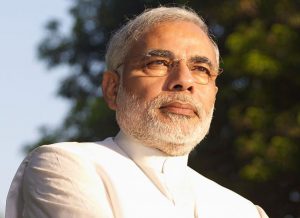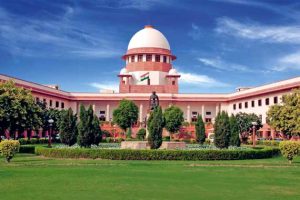New Delhi, August 14 (NIA): The end of the week saw Pakistan up the ante on the Kashmir issue as India appeared to soften its stand and climb down a notch or two, mainly because of the relentless civilian struggle in Kashmir and the bad publicity that police action has got on a daily basis in the past month.
On Sunday, the Pakistan High Commissioner in India, Abdul Basit, declared that his country will support the struggle in Kashmir till its goal of “Azadi” (Freedom) is achieved. Back in Pakistan, the railway is running a train, christened “Azadi Train”, across 4,000 km, to educate the masses about the Kashmiri struggle.
Meanwhile, in New Delhi, the Supreme Court had ticked off the Kashmir police for using excessive force and exacerbating tension, even as it chided the Kashmiri demonstrators for provoking the police. The court further said that the police must allow protest, recalling that the Indian freedom movement was all about protest demonstrations.
At an all-party meeting in the Indian parliament on Friday, Prime Minister Narendra Modi offered to talk to the Kashmiris “on all genuine grievances” but within the framework of the Indian constitution. The opposition Congress party called for talks with all stakeholders to bring about normalcy and offered its support to these efforts.
But Modi hit out at Pakistan for interfering in Kashmir.
“Pakistan forgets that it uses fighter aircraft against its own people. The time has come for Pakistan to answer for its atrocities in Balochistan and Pakistan-occupied Kashmir,” he said.
The Communist parties CPI(M) and CPI demanded the withdrawal of the Armed Forces Special Powers Act (AFSPA) which gives the Security Forces sweeping powers.

Pakistan On Offensive
Assuming a belligerent posture in view of India’s weakened position in Kashmir, Pakistan’s High Commissioner to India, Abdul Basit, said on Sunday, that his country is dedicating its Independence Day on August 14, to Kashmir’s “freedom” and that it would continue to extend full diplomatic, political and moral support to the people of the State to gain “Azadi” or Freedom.
Basit’s comment came during the country’s Independence Day celebrations at its embassy in New Delhi.
“We are dedicating this year’s Independence Day to the freedom of Kashmir. And, we firmly believe that the sacrifices made by the people of Jammu and Kashmir will not go in vain. The ongoing unrest should be ended. Pakistan will continue to extend its full diplomatic, political and moral support to the valiant people of Jammu and Kashmir till they get their right to self determination,” Basit said.
“The aspirations of the people of Jammu and Kashmir cannot be suppressed, and that the freedom movement will reach its logical conclusion, he added.
Indian Court Chides Kashmir Police
Kashmir has been the victim of separatists’-driven protests, but abuse by an ill-trained police force exacerbates violence and triggers public anger, the Indian Supreme Court said on Friday as Kashmir reeled under armed stand-offs between civilians and police since the killing of Hizbul Mujahideen commander Burhan Wani on July 8.
While India sees Wani as a terrorist, the Kashmiris consider him a freedom fighter.
The Indian apex court warned protestors not to mistake their right to assemble and move freely as unlimited freedom to indulge in violence. At the same time the court cautioned the Security Forces against “indulging in excesses which become barbaric, not halting even after controlling the situation”.
“A distinguishing feature of any democracy is the space offered for legitimate dissent. One cherished and valuable aspect of political life in India is a tradition to express grievances through direct action or peaceful protest. Organized, non-violent protest marches were a key weapon in the struggle for Independence…” the judgment by a Bench comprising Justices A.K. Siri and R.K. Agrawal said.
The judgment recalled the history of legitimate dissent in the “land of Salt Satyagraha, fast-unto-death and do or die”. The court pointed out how violence triggers more violence from the police, who use excessive force to control the mob.

It urged police personnel to restore calm with “utmost care, deftness and precision” so that no harm is caused to human life and dignity. It has to be seen that “on the one hand, law and order needs to be restored and at the same time, it is also to be ensured that unnecessary force or the force beyond what is absolutely essential is not used”.
The court said the State cannot hide behind the defense of sovereign immunity when there is a “patent and incontrovertible” violation of fundamental rights through brutality, torture and custodial violence.
The judgment was on a petition filed by several persons, including activists, alleging that they were brutalized by the Jammu and Kashmir Police when their protest espousing the case of Jammu migrants led to a clash with the police in 2007.




























































